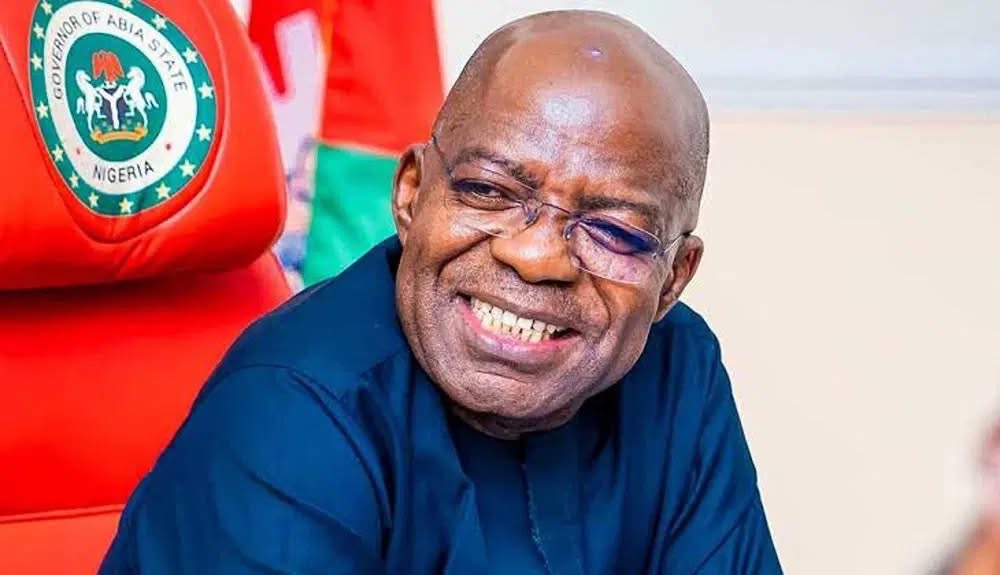
A growing controversy is unfolding in Abia State as Hon. Victor Ngwakwe, the Leader of the Osisioma Ngwa Legislative Council, has resigned from office, citing lack of access to local government funds and alleged financial control by the state government.
Ngwakwe, who represents Osokwa Ward, tendered his resignation after publicly lamenting what he described as the systematic hijacking of local government allocations by the Abia State Government. According to him, the development has rendered local councils “powerless and broke,” leaving councillors unable to meet the needs of their constituents.
“Our people are not asking for much. They just want the basic things government is supposed to do for them,” Ngwakwe said. “But the grassroots don’t know the people at the state level — they only have access to their councillors, who unfortunately have no funds to work with.”
Ngwakwe accused the state government of violating the Nigerian Constitution and the Local Government Act, which guarantee fiscal autonomy for local councils. He alleged that all financial decisions concerning Osisioma Ngwa and other LGAs are taken at the Government House in Umuahia, contrary to constitutional provisions.
“Everything is done at Government House in Umuahia, which is against what’s clearly stated in the Constitution,” he asserted.
A councillor who spoke to Chronicles Reporters on condition of anonymity corroborated Ngwakwe’s claims, describing a system where elected local officials have no control or knowledge of council finances.
“We don’t participate in projects, we don’t know how much is allocated, and we don’t know how funds are spent,” the councillor said. “You just wake up and see that they’re constructing a market somewhere. We don’t even know who approved it or how much was budgeted.”
The councillor further revealed that local budgets are neither debated nor approved by the legislative arm of the councils, in clear contravention of due process.
“We don’t pass budgets, we don’t appropriate funds, we don’t oversee projects or approve them. We’re completely sidelined,” he said.
According to him, the councillors receive only ₦240,000 monthly, a figure he described as “paltry and demoralising,” especially when compared to the hundreds of millions allegedly allocated to each local government monthly from the federation account.
“That’s why you see what’s happening in Osisioma,” he added. “Our leader, Hon. Ngwakwe, spoke out, saying we don’t even know how the local government gets ₦400 million or ₦500 million, yet we only get ₦240,000. Because of that, they insisted he must resign. He was under pressure for weeks before stepping down.”
The councillor lamented the culture of fear and sycophancy among local lawmakers, which he said has made many unwilling to challenge the system.
“Sycophancy is too common among councillors here in Abia State,” he said. “People are afraid to speak because they don’t want to lose their positions.”
Ngwakwe’s resignation has sparked widespread concern over the management of local government finances in Abia State, with civil society groups and political observers calling for an independent audit of allocations and expenditures.
Analysts say the development reflects a broader national issue — the erosion of local government autonomy through state-controlled joint accounts, which critics argue have become a tool for political manipulation and corruption.
For now, the Deputy Leader of the Osisioma Ngwa Legislative Council has stepped in as acting leader, while the Abia State Government has yet to issue an official statement on the controversy.
Sources within the state administration, however, told Chronicles Reporters that the government may soon review its local government funding structure amid growing pressure from within and outside the state.
Meanwhile, the Abia State Councillors’ Association has remained silent, with members said to be divided over whether to publicly support Ngwakwe’s position or maintain loyalty to the state government.
Under Nigeria’s 1999 Constitution, local governments are meant to function as independent tiers of government, receiving direct allocations from the Federation Account. However, in practice, most state governments operate a Joint State-Local Government Account (JAC) system that allows them to control local funds, often leaving councils underfunded and ineffective.
Ngwakwe’s resignation, observers say, could reignite the debate over true local government autonomy in Abia and across Nigeria — a long-standing demand of reform advocates seeking to strengthen grassroots governance.